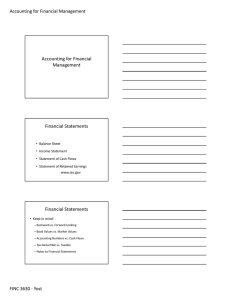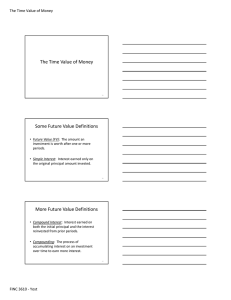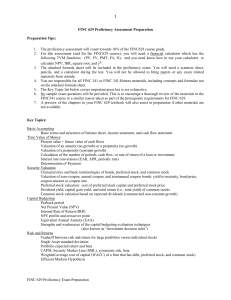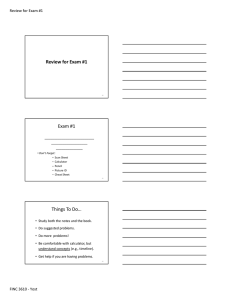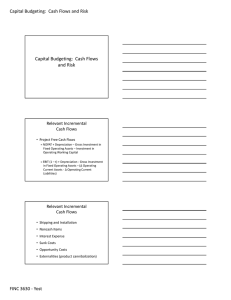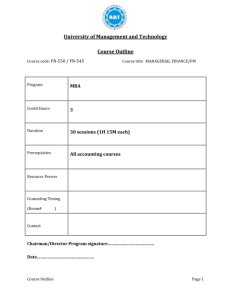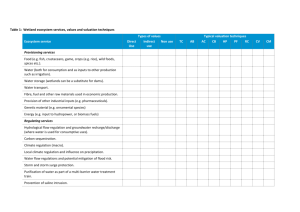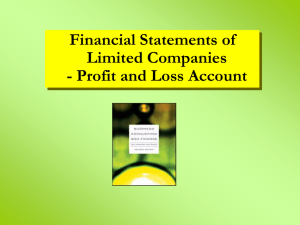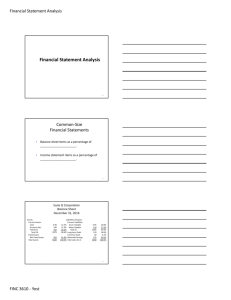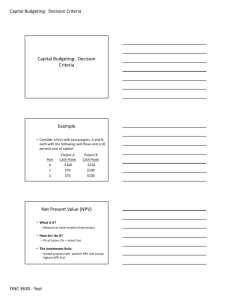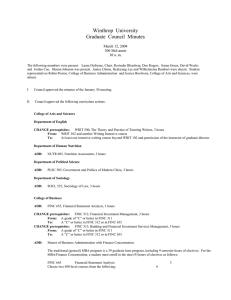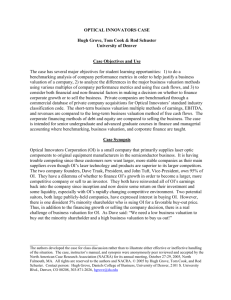Corporate Value Corporate Value The Corporate Valuation Model
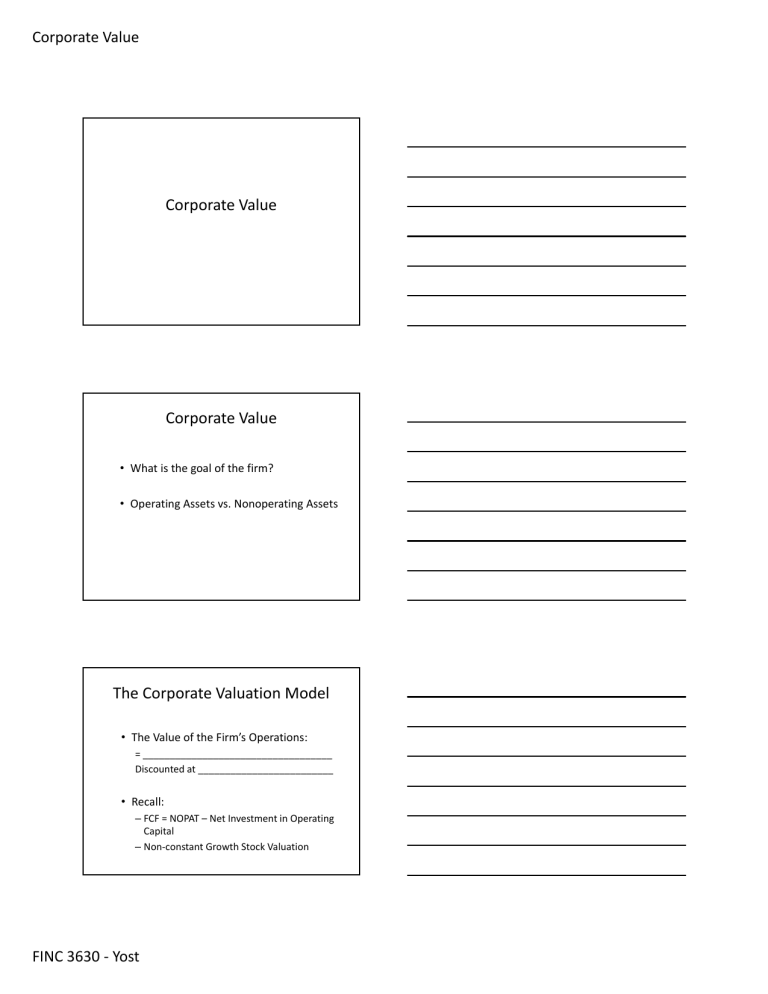
Corporate Value
Corporate
Value
Corporate
Value
• What is the goal of the firm?
• Operating Assets vs.
Nonoperating Assets
The
Corporate
Valuation
Model
• The Value of the Firm’s Operations:
= ___________________________________
Discounted at _________________________
• Recall:
– FCF = NOPAT – Net Investment in Operating
Capital
– Non ‐ constant Growth Stock Valuation
FINC 3630 ‐ Yost
Corporate Value
The
Corporate
Valuation
Model
• The Value of a Firm
= Value of the Firm’s Operations + Value of the
Firm’s Nonoperating Assets
– Includes Value of Current Assets ‐ in ‐ place and
– Present Value of Growth Opportunities
Corporate Valuation:
Example #1
• Consider a firm that just finished the year with
$20 million in free cash flows.
The firm has a
WACC of 10 percent and you expect cash flows to grow at 5 percent for the foreseeable future.
In addition, the firm has $100 million in marketable securities, $200 million in debt, $50 million in preferred stock.
The book value of equity is $210 million.
What is the value of the firm?
What is the value of common equity?
Corporate Valuation:
Example #2
• Consider a firm that plans to expand by borrowing $40 million and using internal funds.
The firm has a 10 percent WACC, 10 million shares outstanding, and currently does not have any debt or pay dividends.
Free cash flows are forecast to be ‐ $5 million next year, $10 million and $20 million the following two years, respectively, and grow at 6 percent thereafter.
What is the value per share?
FINC 3630 ‐ Yost
Corporate Value
Value
‐
Based
Management
• 4 Drivers of Firm Value
1.
2.
3.
4.
Corporate
Governance
• The Goal of the Firm:
• The Goal of Corporate Governance:
• 3 Elements of Corporate Governance:
– Managerial Entrenchment
– Compensation
– Effective Monitoring by the Board of Directors
Managerial
Entrenchment
• What is managerial entrenchment?
• Preventing hostile takeovers:
– Targeted Share Repurchases (Greenmail)
– Shareholder Rights Provisions (Poison Pills)
– Restricted Voting Rights
FINC 3630 ‐ Yost
Corporate Value
Compensation
• Stock Options
– What are they?
– Why are they good?
– Why might they be bad?
• ESOPs
– What are they?
– Why are they good?
– Why might they be bad?
Effective Monitoring by the Board of
Directors
• Inside vs.
Outside Directors
• Chairman vs.
CEO Titles
• Interlocking Boards
• Institutional Investors/Blockholders
• Compensation Through Shares/Options
• Staggered Boards
Chapter 11
Suggested Problems
• Questions:
– 11 ‐ 3 and 11 ‐ 4
• Problems:
– 11 ‐ 1 through 11 ‐ 4, and 11 ‐ 6 through 11 ‐ 10
FINC 3630 ‐ Yost
